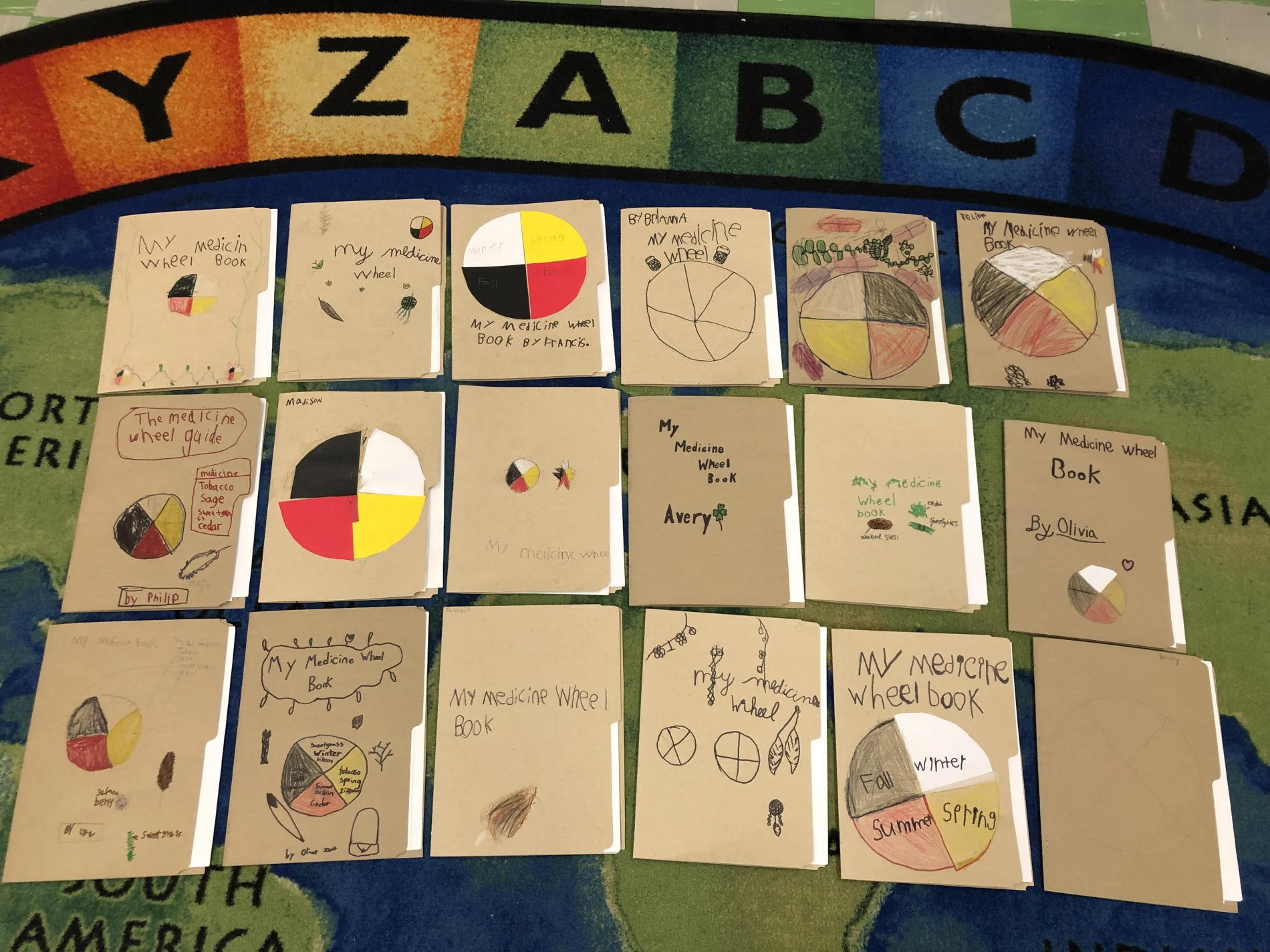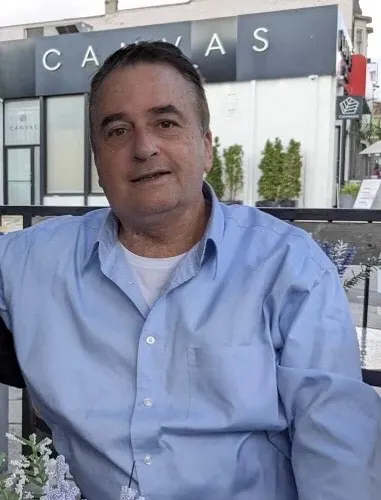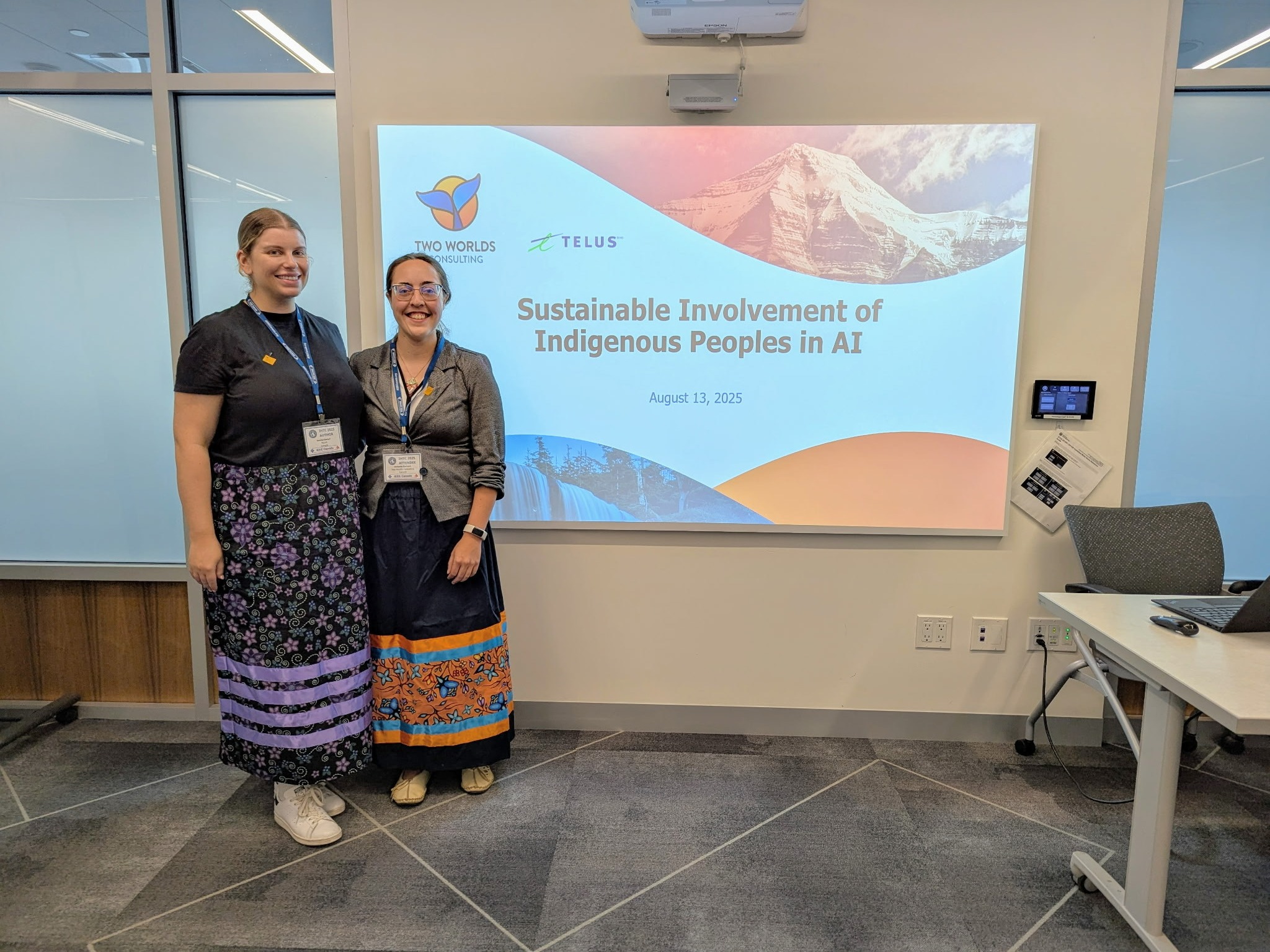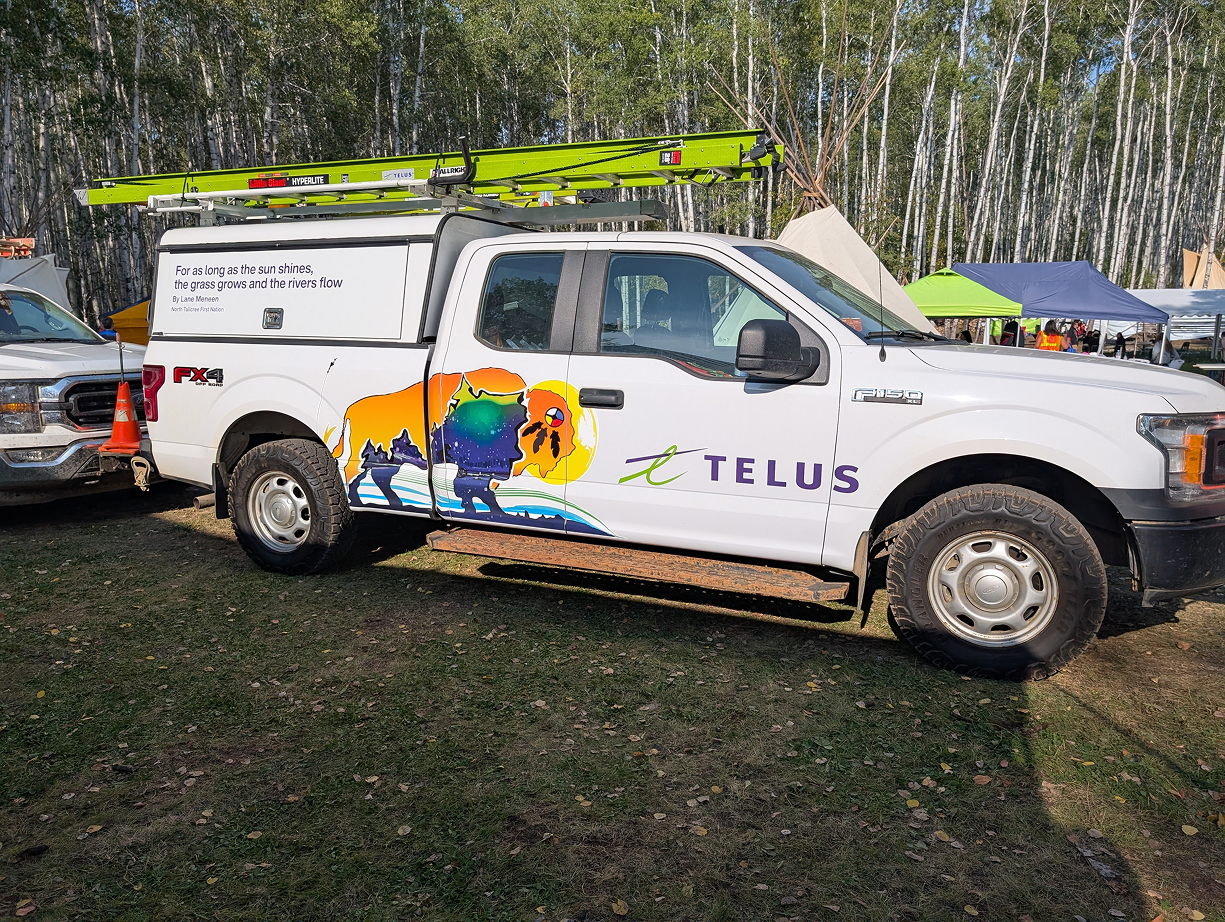
Connecting Canada
How one TELUS bursary recipient is inspiring new generations of Indigenous students
Dec 3, 2023
Bailey McGill is seizing every opportunity to incorporate Indigenous ways of knowing and being in her classrooms, teaching younger generations the stories she wishes she had learned in school.
The 26-year-old Saugeen Anishinâbe woman of the Timiskaming First Nation in Quebec is halfway through the
Waaban Indigenous Teacher Education
program at York University and has just begun her practicums in the Greater Toronto Area.
McGill incorporates traditional and sacred teachings, including the Medicine Wheel, in her classroom sessions with students at Ossington/Old Orchard Primary School.
McGill is a recipient of a
TELUS Student Bursary
through Indspire, a national Indigenous registered charity that invests in the education of First Nations, Inuit and Métis people for the long term benefit of these individuals, their families and communities, and Canada. This year, the TELUS Friendly Future Foundation® partnered with Indspire to recognize and nurture the incredible potential within Indigenous communities. This bursary was co-designed to support Indigenous youth ages 17 to 29 to pursue their dreams, while removing financial barriers and rewarding their efforts to bring positive change to their communities. McGill’s dream, which she’s already bringing to life through her teaching placements, is to equip the next generation of students with the tools they need to understand what reconciliation with Indigenous Peoples means, why it matters and what they can do to encourage it.
“I would not be able to be doing the work that I'm doing right now without help from programs like Indspire, and without the TELUS Student Bursary. This is life-changing for Indigenous students who otherwise would not have the opportunity to go to school,” McGill said.
McGill draws inspiration from her father, Bob, who taught her to be proud of her Indigenous heritage and culture.

Bob McGill
“Getting to share stories with my dad … it's been healing for me, but it's also been really healing for him, because he grew up in a time when it wasn't okay to be Indigenous,” she explained.
“Me being born in the ‘90s, I actually caught the tail wind of that as well. I got a good glimpse of what it means to not belong in either world, when maybe you should belong in both,” she said.
Today, McGill says she’s seeing a societal shift in perspective occurring, and she’s hopeful that her efforts in the classroom can help accelerate that positive change.
“We have people on the precipice of understanding what it means to be Indigenous on Turtle Island. We didn't have that five, 10 years ago. Now I think it is the time where the real work happens,” she said.
It’s happening in her classroom. It happens every time she greets her students with the Anishinâbe word “Aaniin,” and they return the greeting, and every time she introduces the medicine wheel and reminds her students of how we are all interconnected. McGill sees each of these interactions as a step toward mutual respect and deeper appreciation of relationships with one another and the natural world.

McGill is especially excited to begin her next practicum at Kapapamahchakwew, or Wandering Spirit elementary school in Toronto, which provides Indigenous children with unique opportunities to learn about Anishinaabe cultural traditions.
She knows firsthand how important it is for Indigenous youth to be immersed in their traditions, and to find ways to reconnect with aspects of their culture that have been worn away by decades of mistreatment of Indigenous Peoples. Her father is a
Sixties Scoop
survivor, and her paternal grandmother is a survivor of Canada’s residential school system. “You can't just remove the intergenerational trauma; it leaves this big, hollow hole. You have to replace it with something, and our culture has been really important in that healing process,” she said.
Though rewarding, McGill shares that the work isn’t easy, and that she still confronts systemic barriers and prejudices on a regular basis. But she’s grateful for the strength of her community and for the example of perseverance and resilience she sees in her father.
“To have the reassurance from my dad, who has been through so much more than I have and seen so much more than I have, and to know that he's made it to where he is, and that he’s still putting in the work, and he's still reclaiming his culture after all these years – it gives me strength in knowing that I'm going to be capable and I'm going to be successful,” she said.
Visit
Indspire’s
bilingual Building Brighter Futures: Bursaries, Scholarships and Awards program to learn about the funding offered to support post- secondary education. Read more inspiring stories like these and learn about TELUS’ longstanding commitment to reconciliation in the 2023 Indigenous Reconciliation & Connectivity Report.

